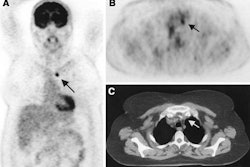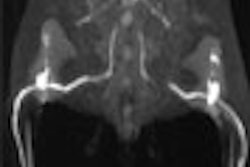Radiotherapy appears to be beneficial after surgery for patients with ductal carcinoma in situ (DCIS), according to a study published in The Lancet. Researchers from the United Kingdom Coordinating Committee on Cancer Research DCIS Working Party suggest that mastectomy alone for localized DCIS may not be sufficient.
Researchers found that women who have pre-invasive breast cancer are less likely to advance to invasive cancer when they receive radiotherapy following surgery.
"The major implications are all patients having local excision for DCIS need to be considered for radiotherapy. It may be that some sub-groups of patients require the radiotherapy more than others but we cannot define this yet from our data, although the detailed pathology study, currently underway, may provide insights," said Joan Houghton, researcher and senior lecturer in clinical trials, department of surgery, Charles Bell House, London.
For this study, investigators examined 1,700 women from the U.K., Australia, and New Zealand in order to determine the effectiveness of adjuvant radiotherapy and tamoxifen. They used a "2 x 2 factorial design" in a randomized controlled trial (The Lancet, July 12, 2003, Vol. 362, pp. 95-102).
Over an eight-year period (May 1990 to August 1998), female patients who had unilateral or bilateral DCIS were recruited from screening programs and "randomized to both treatments in combination or singly, or to none, or to either one (radiotherapy) with an elective decision to give or to withhold the other (in this case tamoxifen: 20 mg/daily)."
Patients had complete surgical excision of the lesion confirmed by specimen radiography and histology. Follow-up of patients was conducted at least once a year for approximately four and a half years. Researchers compared data for 1,030 patients and conducted bilateral mammography for the first seven years.
Five hundred eight patients received radiotherapy in the control group. Investigators found that 16% of the women (263) developed new breast disease in the follow-up term. In this particular group, only 9% had recurrent ductal carcinoma in situ and 6% developed invasive cancer.
The authors determined that radiotherapy lowered the occurrence of ipsilateral invasive disease (0.45 [0·24-0·85]; p=0.01) and ipsilateral ductal carcinoma in situ (0·36 [0·19-0·66]; p=0·0004), but there was no impact on the incidence of contralateral disease. Although the study found little benefit in administering tamoxifen for women over 50 years of age, radiotherapy can be recommended for patients with ductal carcinoma in situ that has been treated with complete local excision.
By Jerry IngramAuntMinnie.com contributing writer
July 11, 2003
Related Reading
Chemotherapy reduces breast cancer risk in radiation-treated Hodgkin's patients, July 2, 2003
Adjuvant chemo affects bone density in postmenopausal breast cancer patients, June 18, 2003
CNS metastases common among breast cancer patients given trastuzumab, June 16, 2003
Local breast cancer recurrence not unusual after surgery/adjuvant therapy, May 5, 2003
Copyright © 2003 AuntMinnie.com



















